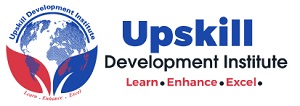Introduction
A value chain involves all activities that are required to bring a product or service from production to final consumers. The activities include design, production, marketing, distribution and support services leading up to consumption. There is also an element of value addition to the preliminary products across the chain as the product passes through the stages of the value chain. For smallholder farmers who are dominant in crop and livestock production in Africa to realize the benefit of participating in the value chain including linkage to input suppliers, traders and output market, there is need for them to have a strong position in the chain in terms of influencing their benefits. This 10 day training course aims to equip stakeholders working with farmers in rural, urban and peri-urban areas to strengthen their position in value chains.
Duration
10 Days
Course Objectives
After this course participants will be able to:
- Explain the Value Chain, its concepts, principles and approaches and its role in sustainable economic development
- Explain Value Chain Development and Actor Empowerment (VCD&AE)
- Analyse the Value Chain using a variety of tools and steps, identifying constraints and opportunities for innovation
- Identify the steps for building engagement among and between chain actors
- Set up an effective monitoring, evaluation and impact assessment plan for a VCD&AE process
Course Content
Module 1: Introducing the value chain
- Formal definition of a value chain
- Traditional Selling Systems Compared with a Value Chain Marketing System
- Value Chain Marketing System
- Value Chain Framework
- The “new” framework for Chain Empowerment
- Chain Empowerment
- Case studies and group work
Module 2:
Value chain mapping and analysis
- Value chain development process
- Value chain selection
- Chain mapping and assessment
- Introduction to Value Chain selection process
- Building Engagement and Chain Development/Upgrading
- Chain Monitoring and Evaluation
Module 3:
Analyzing market and market development
- Introduction to market analysis
- Supply, demand and price setting
- Standards and certification
- Analyzing competition
- Group Exercise
Module 4:
Economic Sustainability
- Analyzing Economic Sustainability of Value Chains
- Introduction, calculating costs, revenue, profit margin, value added, value share
- Group work – the economic sustainability of selected value chains
Module 5:
Value chain relations and governance
- Analyzing value chain relations and governance
- Intro-Importance of VC relations and governance
- analysis of value chain relations and governance
- Group work, presentation and discussion
Module 6:
Field trip: A trip to producers, processors, and buyers
Module 7:
Business Services and Finance
- The role of chain supporters; Business development services and Value Chain financing
- Group work – Role of VCD facilitator in enhancing availability of BDS to small holder farmer
Module 8:
Chain Context: Macro-environment
- The components of the macro- environment and their impact on value chain development
- Advocacy:- influencing the macro environment; Group work – PESTLE analysis of selected value chain
Module 9:
Developing Strategies for Chain Empowerment
- Introducing chain empowerment strategies
- Group work/case study on chain empowerment
Building Engagement and Chain Development
- Building engagement: obtaining “buy-in” from stakeholders
- Introduction to strategy development
Module 10:
Chain Monitoring and Evaluation
- Introduction; reiteration of concepts and terminology;
- Development of indicators and selection of analytical tools
Module 11:
Chain Learning and Innovation
- Introduction and examples
Competencies and Roles of chain development facilitator’s and support agencies
- Roles of chain development facilitator’s, and support agencies
- The do’s and don’ts of facilitators; Key competencies of VCD facilitators
- Action planning
- Course evaluation
Module 12:
Field trip: A trip to producers, processors, and buyers
Training Approach
This course will be delivered by our skilled trainers who have vast knowledge and experience as expert professionals in the fields. The course is taught in English and through a mix of theory, practical activities, group discussion and case studies. Course manuals and additional training materials will be provided to the participants upon completion of the training.
Tailor-Made Course
This course can also be tailor-made to meet organization requirement. For further inquiries, please contact us on: Email: training@upskilldevelopment.com Tel: +254 721 331 808
Training Venue
The training will be held at our Upskill Training Centre. We also offer training for a group at requested location all over the world. The course fee covers the course tuition, training materials, two break refreshments, and buffet lunch.
Visa application, travel expenses, airport transfers, dinners, accommodation, insurance, and other personal expenses are catered by the participant
Certification
Participants will be issued with Upskill certificate upon completion of this course.
Airport Pickup and Accommodation
Airport pickup and accommodation is arranged upon request. For booking contact our Training Coordinator through Email: training@upskilldevelopment.com, +254 721 331 808
Terms of Payment: Unless otherwise agreed between the two parties payment of the course fee should be done 3 working days before commencement of the training so as to enable us to prepare better

